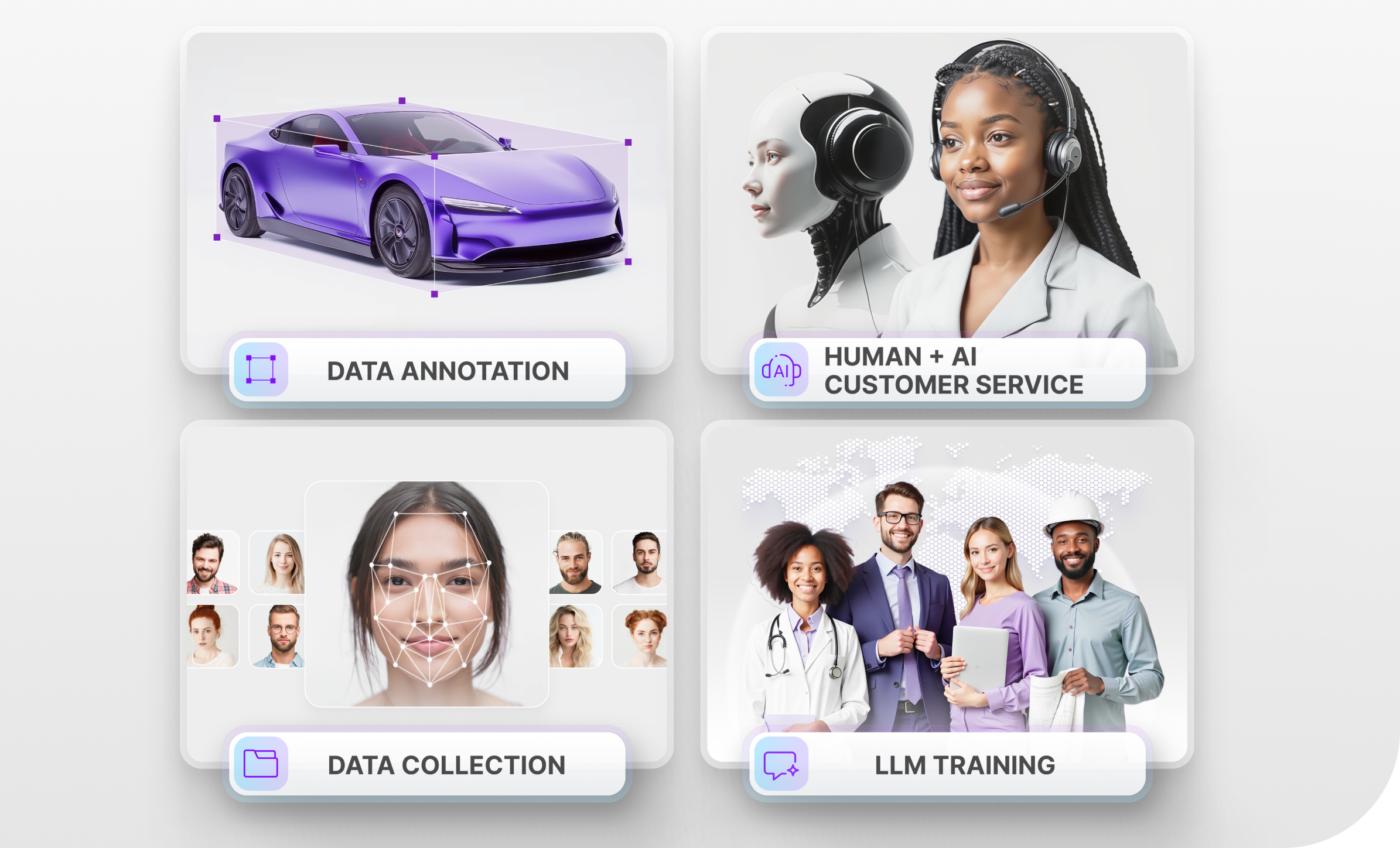What is B2B Customer Service? Examples & Best Practices
Business-to-business service plays a critical role in maintaining long-term relationships between businesses by ensuring that products and services meet the unique needs of corporate clients. Unlike B2C (Business-to-Consumer) customer service, B2B customer interactions are often more complex, involving longer sales cycles, higher-value transactions, and customized solutions. In this article, we’ll explore what B2B customer service entails, offer real-world examples, and provide best practices for delivering outstanding service that builds trust and fosters loyalty in a competitive marketplace.
Introduction: The Importance of B2B Customer Service
The importance of customer service in the B2B context cannot be overstated. When customers buy your product or service, they expect that you will provide them with a high level of experience. This is beneficial for you as well since this will pave the way for renewals and upsell opportunities. Also, high-level B2B customer experience is important since your current customers will tell their friends and business partners about the type of customer service that you offer, and if the review is negative, this can lower your chances of landing that next big deal. Therefore, regardless of what types of B2B services you offer, you need to make sure that you back this up with a high level of customer support.
Understanding B2B Customer Service
The best place to begin is by understanding what is a B2B company. All this means is that one business or a company sells its products or services to another company. B2B customer service often involves communicating directly with client companies—answering their questions, helping them troubleshoot issues, or providing them with the resources they need to solve problems. This can be done through a help center, AI-powered chatbots, or customer service representatives, among other options. When you are a B2B company, the customer service you deliver is considered B2B customer service. It’s that simple.
What is B2B Customer Service?
B2B (Business-to-Business) customer service refers to the support and assistance provided by one business to another, typically within the context of ongoing partnerships or transactions. Unlike B2C customer service, which focuses on individual consumers, B2B customer service deals with corporate clients, often involving more complex needs, longer sales cycles, and customized solutions. This type of service extends beyond basic problem-solving, requiring a deep understanding of the client’s industry, operations, and goals. Effective B2B customer service is essential for fostering long-term relationships, ensuring customer satisfaction, and driving repeat business in a competitive marketplace.
Key Differences: B2B vs. B2C Customer Service
The key differences between B2B and B2C customer service stem from the nature of the customers and the complexity of their needs. Here are some important distinctions:
1.Customer Relationships – B2B customer service focuses on building long-term partnerships with a smaller, more specialized client base, often requiring personalized support. In contrast, B2C typically serves a broader audience, prioritizing quick resolutions for individual consumers.
2.Complexity of Support – B2B clients often require more in-depth, technical, or customized support, as they deal with high-value products or services that are critical to their business operations. B2C interactions are generally simpler, addressing individual product issues or inquiries.
3.Decision-Making Process – In B2B, multiple stakeholders are often involved in decision-making, which means service teams must navigate different needs and expectations. B2C involves fewer decision-makers, usually just the end consumer.
4.Response Time and Availability – B2B customer service typically requires longer response times with dedicated account managers, as issues are often more complex. In B2C, customers expect faster, often instant, resolutions, especially through self-service or live chat options.
5.Volume and Frequency – B2B service tends to involve fewer interactions but with more depth and complexity, while B2C service handles a high volume of interactions at a quicker pace.

Examples of Effective B2B Customer Service
In order to help you provide the best service to your customers, we will give you some B2B customer service examples of how you can start improving your customer experiences today. It is important to understand the following business to business examples of quality service to understand how you can improve and what you can implement today.
- Dedicated Account Managers – A software-as-a-service (SaaS) company assigns dedicated account managers to key business clients, ensuring personalized attention. The account manager understands the client’s business needs, offers tailored solutions, and proactively resolves any issues before they escalate.
- Proactive Support with Regular Check-Ins – A manufacturing supplier schedules regular check-ins with clients to assess their ongoing needs and identify potential pain points. This proactive approach helps prevent issues, optimizes product usage, and fosters strong relationships by showing the supplier is invested in the client’s success.
- Multi-Channel Support for Complex Solutions – A cloud service provider offers multiple channels for customer support, including 24/7 access to live agents, chat support, and self-service portals. Given the technical complexity of their products, this variety of support options allows businesses to resolve issues quickly, whether they require in-depth troubleshooting or quick fixes.
- Customized Training and Onboarding – A logistics company offers personalized onboarding and training sessions for its corporate clients, ensuring that employees at all levels understand how to use the company’s systems and services. This training is tailored to each business’s specific operational needs, ensuring smoother implementation and higher satisfaction.
- Data-Driven Insights and Reporting – A business consulting firm provides its clients with periodic data reports and performance analytics, allowing them to track progress and ROI from the services provided. These insights help clients make informed decisions and enhance the value they derive from the partnership.
Case Study: Innovative B2B Customer Service Solutions
Now that we have looked at some examples of B2B business in customer service, it’s time to look at a practical example. In an increasingly competitive market, innovative B2B customer service solutions are becoming essential for businesses to differentiate themselves and build long-lasting client relationships. One notable case study involves a cloud computing provider that revolutionized its customer support by implementing an AI-driven customer service platform. This solution allowed the company to offer 24/7 personalized support, where AI chatbots could handle routine inquiries while flagging more complex issues for human agents. By leveraging artificial intelligence, the company reduced response times and streamlined issue resolution, significantly improving customer satisfaction. As a result, clients could resolve common technical problems faster, while more challenging cases received immediate human attention, boosting both efficiency and customer loyalty.
B2B Customer Service Success Stories
The times of perceiving B2B buyers as faceless corporations are gone. They are consumers, just like you and me, constantly exposed to the most exciting ways to purchase goods and services. These nuggets of insight point to the urgency for B2B experiences to become B2C in disguise. This shift is recognized by market leaders such as Australia’s largest fashion workwear company, Cargo Crew. With composable commerce, the business builds custom B2B websites dedicated to strategic clients to streamline the complex uniform supply chain process and facilitate easy 24/7 ordering of curated uniform ranges, including categories, images, pricing, and catalog. This tailored site enables clients to purchase uniforms in bulk and personalize products with embroidery, monograms, emojis, and logos.
Mindy Support also has some customer success stories to showcase. For example, we helped our client, a Netherlands-based telecommunications provider, restore customer trust in their support services. We provided Tier-1 and Tier-2 technical support, along with a dedicated Network Operations Center (NOC) team, to one of Europe’s largest ISPs. They ensure 24/7 monitoring of a complex network infrastructure while efficiently handling and resolving customer tickets via email, phone, and web portals. This includes direct communication with various locations, field engineers, and local IT teams. Learn more about the work we did for our client in our case study.
Six Best Practices in B2B Customer Service
If you are looking to increase the level of your customer service today, consider implementing these customer service best practices:
1.Proactivity in Customer Interactions – Do not wait for something to go wrong before you start acting. Be proactive and ask your customers about how well you are doing and if there is something you can improve on.
2.Establishing Strong Service Level Agreements (SLAs) – The reason this is important is because an SLA will allow you and your customers to be on the same page in terms of what you offer and manage expectations.
3.Empowering Customers with Self-Service Options – Let’s face it. Not every single customer wants to spend time contacting your support. A lot of them would much rather save time and fix the problem themselves, if possible.
4.Personalization of the Customer Experience – Nobody wants to be treated like they’re just a member of the crowd. Instead, your customers would like to know and understand that you get their troubles and you are working on a solution to fix it.
5.Leveraging Advanced Customer Service Technologies – Technology doesn’t stand still, and neither should your customer support team. Consider implementing the latest tools, technologies, and methodologies to improve your level of support.
6.Comprehensive Post-Purchase Support – Most people think that your support ends at the time of purchase, but this is simply not the case. In fact, you customers want to see that you stand by the product or service that you sold them and you will be there when they need help.
Overcoming Common B2B Customer Service Challenges
Overcoming common B2B customer service challenges requires a strategic approach tailored to the complexity of business relationships and high-stakes transactions. One major challenge is managing the long response times and technical demands of B2B clients, which can be addressed by implementing Service Level Agreements (SLAs) and leveraging technology like automated ticketing systems and AI-driven support. Another challenge is the need to cater to multiple stakeholders within a client’s organization, each with different needs and expectations. Businesses can overcome this by assigning dedicated account managers who act as single points of contact and by maintaining clear, consistent communication.
Additionally, ensuring service scalability as the client’s business grows can be difficult, but investing in robust customer relationship management (CRM) tools and training teams to handle complex, evolving issues can help ensure that service remains efficient and effective over time. By addressing these challenges with proactive and well-structured solutions, businesses can strengthen client satisfaction and foster lasting relationships.
From Problems to Solutions: Addressing B2B Service Complexities
We looked at what is a service top and what is B2B experience, but we also need to know how to address problems that arise while in the process of trying to achieve our goals. Addressing B2B service complexities requires transforming problems into solutions by adopting a proactive and tailored approach to customer support. B2B interactions often involve intricate technical requirements, multiple decision-makers, and high-stakes transactions, which can complicate the service process. To tackle these complexities, businesses can start by deeply understanding their clients’ industries and unique operational needs. Providing specialized support through dedicated account managers and expert technical teams allows for more efficient resolution of complex issues. Additionally, investing in advanced tools such as AI-driven analytics, customer portals, and CRM systems can streamline communication and track service history, ensuring faster problem-solving. By anticipating challenges, offering personalized solutions, and continuously optimizing processes, businesses can turn service complexities into opportunities to deliver exceptional value and build stronger client partnerships.
Conclusion: Enhancing Your B2B Customer Service Strategy
In conclusion, enhancing your B2B customer service strategy is crucial for building strong, lasting relationships with business clients and maintaining a competitive edge. To achieve this, companies must focus on delivering personalized, responsive, and proactive support that addresses the unique complexities of B2B interactions. Leveraging technology such as CRM systems, AI-driven support, and real-time analytics can streamline processes and improve response times while assigning dedicated account managers fosters a deeper understanding of clients’ needs. By continuously evolving their customer service approach, investing in employee training, and implementing tailored solutions, businesses can not only resolve challenges effectively but also create long-term value and loyalty, driving growth and success in the B2B market.




